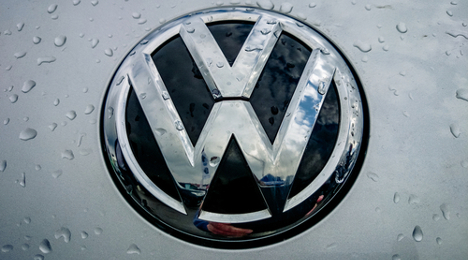Rejection of VW fix ‘not a major setback’

By subscribing, you agree to receive communications from Auto Remarketing and our partners in accordance with our Privacy Policy. We may share your information with select partners and sponsors who may contact you about their products and services. You may unsubscribe at any time.
SACRAMENTO, Calif. –
The California Air Resources Board, commonly known as CARB, rejected Volkswagen Group of America’s submitted recall plan for its 2.0-liter diesel vehicles on Tuesday, citing insufficient details in its plan as the reasoning behind its rejection.
Here’s CARB’s exact verbiage:
- The proposed plans contain gaps and lack sufficient detail.
- The descriptions of proposed repairs lack enough information for a technical evaluation; and
- The proposals do not adequately address overall impacts on vehicle performance, emissions and safety
Rebecca Lindland, Kelley Blue Book senior analyst, said in a statement, “The rejection is not a surprise.”
“Volkswagen has been working on an additional potential fix involving the catalytic converter,” she continued. “Those details have not been worked out. The reasons for the rejection involve needing more details and specifications. This is not a major setback. If they present them with another plan and that’s rejected, we can start to see some real concern. However, it’s unfortunate because it continues to delay getting consumers the answers and solutions they want, need and deserve.”
To be clear, CARB’s rejection was for a recall plan submitted by VWoA to fix its 2.0-liter diesel engines. VW’s submission for a fix for its 3.0-liter diesel engines is due to CARB on Feb. 2.
In the same statement from KBB, the company's senior analyst Karl Brauer speculates that the industry may hear as soon as tomorrow whether or not the next iteration of VW's plan submissions has been accepted by CARB.
Subscribe to Auto Remarketing to stay informed and stay ahead.
By subscribing, you agree to receive communications from Auto Remarketing and our partners in accordance with our Privacy Policy. We may share your information with select partners and sponsors who may contact you about their products and services. You may unsubscribe at any time.
“It's obvious the EPA and CARB are seeking a very specific and comprehensive resolution plan," he said. "Volkswagen's initial plan didn't satisfy the agencies' requirements, but VW has stated repeatedly that it's been in ongoing discussions with regulators. If they are already close to a workable solution we might get a finalized, approved plan tomorrow.”
Along with the rejection, CARB also notified VW on Tuesday with a reiteration of the latter’s violations of California air quality regulations associated with VW’s use of “defeat devices” in those vehicles.
CARB chair, Mary Nichols, said in a statement that today’s actions are step toward solving the issue.
"Volkswagen made a decision to cheat on emissions tests and then tried to cover it up,” Nichols said. “They continued and compounded the lie and when they were caught they tried to deny it. The result is thousands of tons of nitrogen oxide that have harmed the health of Californians. They need to make it right. Today's action is a step in the direction of assuring that will happen."
At the time of this writing, VW of America has not responded to Auto Remarketing’s request for comment on the situation.


